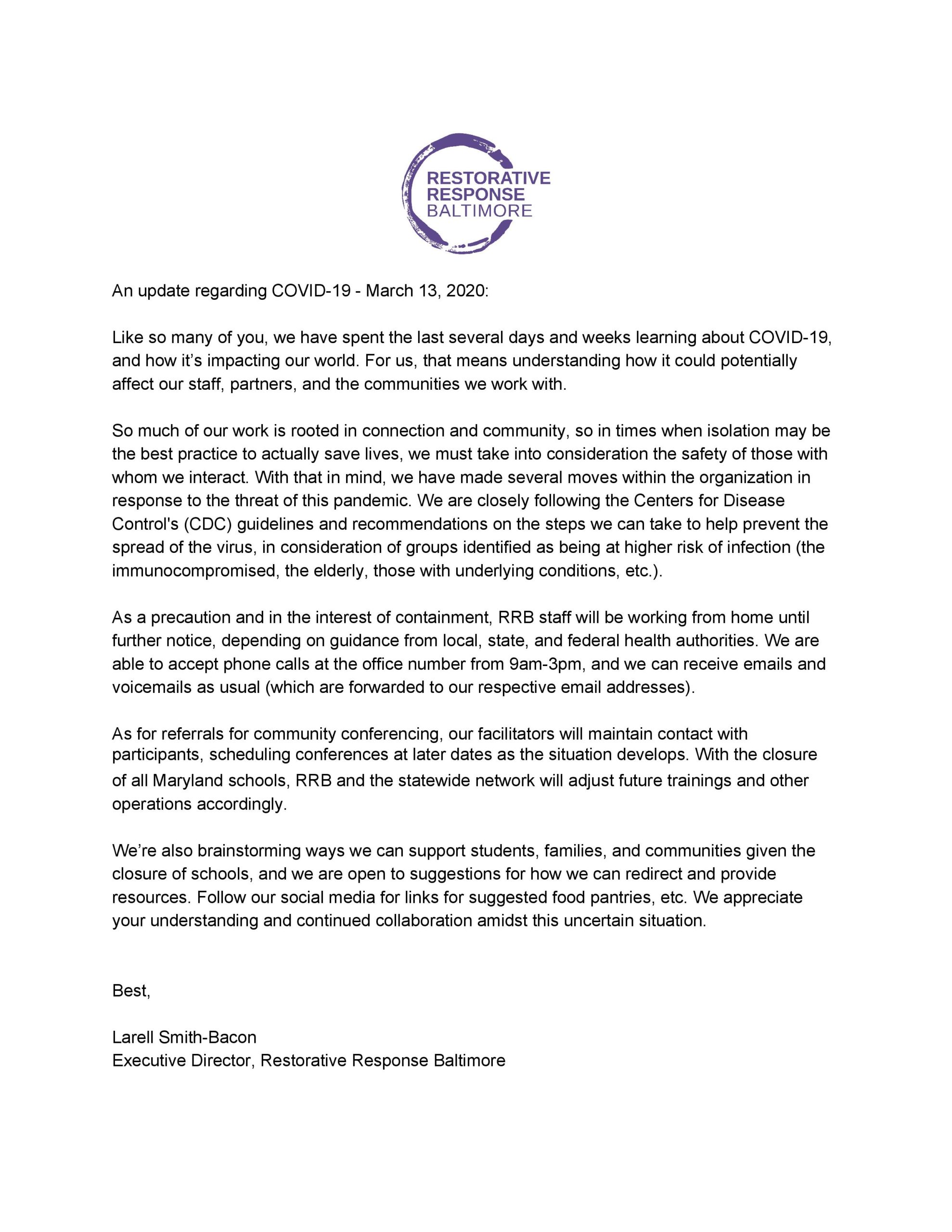In 1995, Dr. Lauren Abramson introduced community conferencing in Baltimore. After learning about the process at a conference of the Silvan S. Tomkins Institute in Philadelphia in 1994, from Australian David Moore, Lauren attended the first facilitator training workshops conducted in the United States by Transformative Justice Australia.
Lauren became keenly interested in bringing community conferencing to Baltimore because of the power conferencing has to not only bring about important system reforms (e.g. in criminal justice and education), but to also co-power individuals, families and communities to resolve their own conflicts and crimes.
After three years of promoting this restorative process to local leaders in criminal justice, education and community development, the first Facilitator Training Workshop was held in Baltimore in 1998 with the support of the Governors Office of Crime Control and Prevention (GOCCP). The GOCCP then funded four Baltimore communities to build their own community conferencing programs, with Lauren providing technical support which was funded by the Maryland Judiciary.

